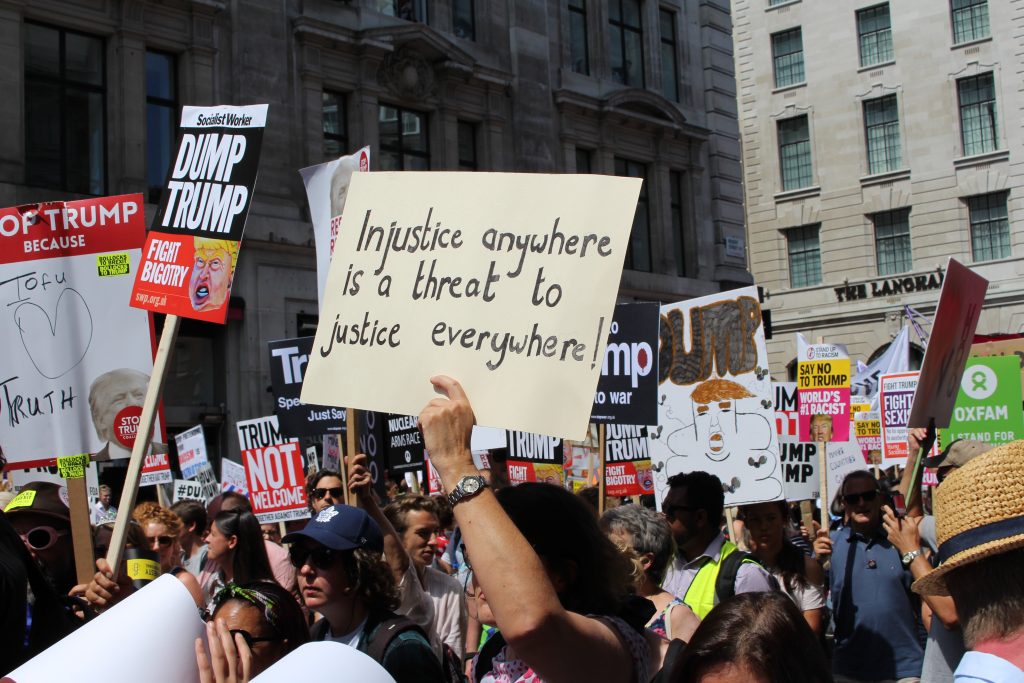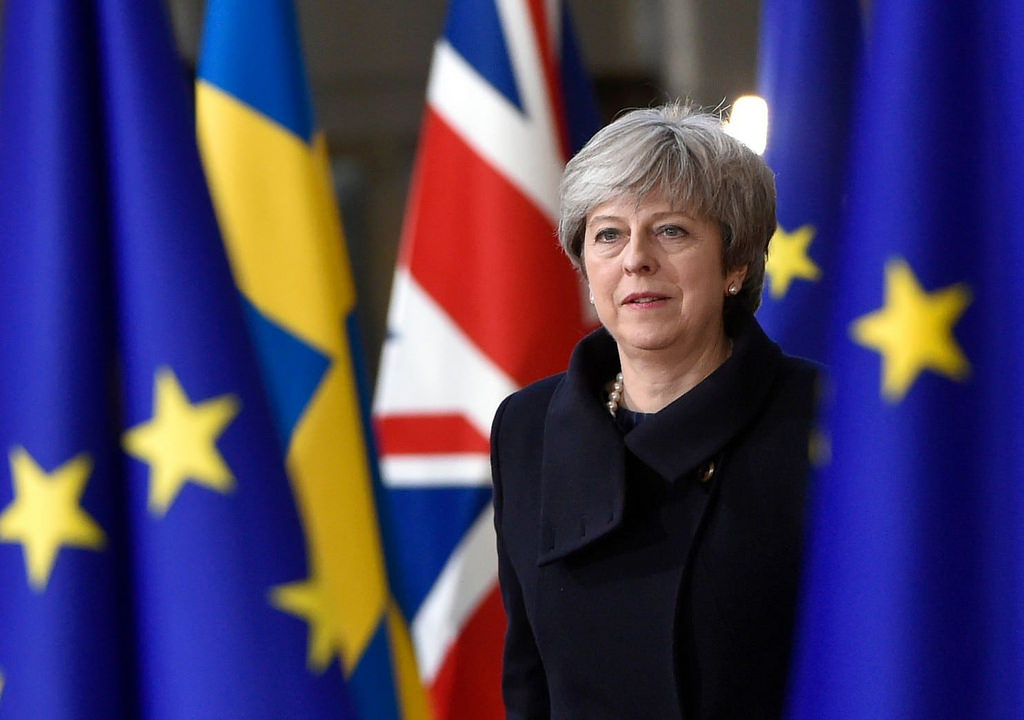Prime Minister Theresa May could scrap vital human rights protections after Brexit negotiations are finished, new documents reveal.
The House of Lords, the second chamber in Westminster, had written to Justice Secretary David Gauke to clarify the Government’s position on both the Human Rights Act and the Human Rights Court.
The Human Rights Act is a piece of legislation, passed in 1998, which enshrines our human rights into UK law. It protects everything from our right to life to our right to privacy, and allows us to challenge Government decisions in a domestic court in the UK, as well as taking the case to the Human Rights Court if needs be.
However, in a reply from junior minister Edward Agar, responding on behalf of Mr Gauke, it was revealed the legislation could be reviewed after Brexit negotiations had concluded.
‘The Human Rights Act Is Not Safe After Brexit’

Justice Secretary David Gauke was emailed by the House of Lords. Image Credit: Saeima / Flickr
When asked if the Government intends to “bring forward plans to break the formal link” between the UK and the court, Mr Argar refused to offer a guarantee the protections would remain in place.
Instead, he responded that the Tory manifesto was “was committed to not repealing or replacing the Human Rights Act while the process of EU exit is underway”.
“It is right that we wait until the process of leaving the EU concludes before considering the matter further in the full knowledge of the new constitutional landscape,” he added.
Speaking about the response, Baroness Kennedy of The Shaws, who chairs the House of Lord’s EU Justice Sub-Committee, said they had “repeatedly asked the Government for assurances” about citizen’s rights post-Brexit, deal or no deal.
We have repeatedly asked the Government for assurances regarding citizen’s rights post-Brexit, deal or no deal.
Baroness Kennedy of The Shaws
She added that: “again and again we are told the Government is committed to the [Human Rights Convention], but without a concrete commitment, and with messaging that is changing and becoming diluted.”
The committee also slammed the report as “troubling”, adding that “the Human Rights Act is not safe after Brexit”.
A ‘Disturbing Response’ Which Is ‘Casually Dismissive’
The statement has caused a sharp backlash from across the political spectrum, with even some Conservative MPs turning on Theresa May.
Speaking to The Independent, Dominic Grieve, former attorney general, said the move would be “incredibly pointless” and a “big mistake”.
RightsInfo’s Natasha explains why the Human Rights Act is so vital
“It would introduce a new level of complexity for no conceivable benefit for either the government or the public whatsoever”, he continued. “It appears a bit desperate.”
David Cameron had floated the idea of replacing the Human Rights Act as early as 2007, however, the idea has since been largely shelved, with no concrete proposals of alternatives ever materialising.
The Liberal Democrats were also swift to slam the move, with Home Affairs spokesperson, Ed Davey calling it a “scandal” and “an attack on British freedoms”.
Rachel Logan, legal programme director at Amnesty International UK, also added that this was “yet another disturbing response from the Government, who seem to be casually dismissive of the importance of the Human Rights Act”.
It’s the unsung hero of UK life, holding powerful people and institutions to account when ordinary people are let down. It’s deeply concerning that the Government refuses to acknowledge that reality.
Rachel Logan, Amnesty International UK
“The Human Rights Act has been central to the vital pursuit of justice in this country for the last 20 years,” she continued. “It is the unsung hero of UK life, holding powerful people and institutions to account when ordinary people are let down. It is deeply concerning that the Government refuses to acknowledge that reality.”
“The Human Rights Act is a critical safety net for everyone in our society. Any attempt to dilute or remove the essential protections the Human Rights Act provides should be categorically ruled out.”
Speaking Out Against Changes To Our Fundamental Protections

A sign about human rights at the Donald Trump rally in 2018. Image Credit: Jem Collins / RightsInfo
Speaking to RightsInfo, a spokesperson from Amnesty UK, said: “The main thing we’d encourage people to do is sign our petition to Save the Act, which already has 170,000 signatures.”
“People can also put pressure on their local MPs via local Amnesty groups, using that mechanism to talk about the good things human rights have done.”
As well as pointing to the role of human rights in the Hillsborough Disaster, they added that it’s likely human rights protections could play a key role in the Windrush Scandal and the Grenfell tragedy.
You can sign Amnesty UK’s petition to save the Human Rights Act here, as well as helping to support us in our work to help more people think again about human rights here.







